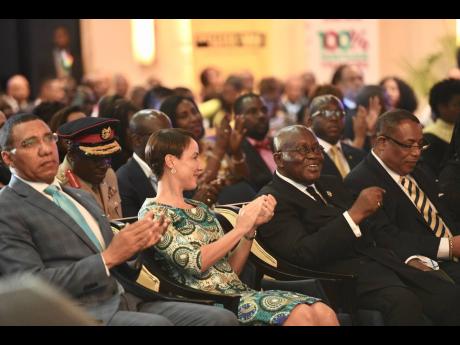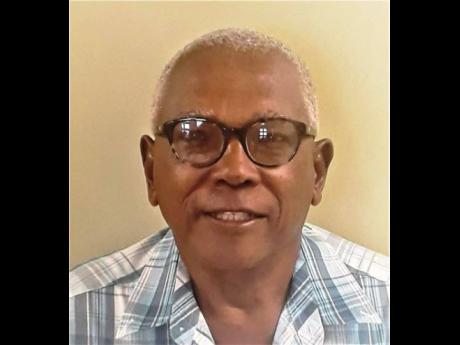Lance Neita | We should welcome the diaspora
It can take you by surprise when you learn how many Jamaicans make up our diaspora.
The last count I have was from a 2018 Jamaica Diaspora survey which gave the number as three million in all countries worldwide with 1.7 million living in the USA, 800,000 in England, 300,000 in Canada, and 200,000 in the rest of the world.
And they don’t ‘mek’ joke with remittances. Sit back in your chairs and get this. According to central bank data, Jamaicans abroad last year 2023 sent home US$3.1 billion, or 46 per cent more than tourism’s domestic retention.
Remittances make up the single largest gross for net foreign exchange income earner for Jamaica. Add to that, Remittances have a significant impact on individual and household income.
We should give a warm welcome to this important global body coming to Jamaica for their 10th Biennial Diaspora Conference June 16-19 at the Montego Bay Conference Centre.
They have an important order of business outlined for their four-day calendar. The comprehensive agenda is designed to foster crucial conversations around security, business, trade, investment, community development, youth empowerment, health technology and education.
SIGNATURE EVENT
The Ministry of Foreign Affairs and Foreign Trade has labelled it a signature event in Jamaica’s effort to meaningfully engage with Jamaicans dispersed around the globe and encourage their involvement in shaping the island’s future.
We need to take our diaspora seriously.
Controversies threatened to ‘bruk up’ the 2024 one even before preparations started. As usual, mischief thrives on misinformation. The diaspora members have much to contribute, not merely from strength of cash, but from their proven experiences and laudable career leadership around the world in areas of finance, business, medicine, politics, industry, sports, entertainment, academia, and management.
We must ensure that they are supplied with credible reports on the economy and other developments in the nation so that they don’t have to rely on rumours. They deserve such as a matter of respect.
They need to be listened to, but they must also come with a listening ear. Our relationships with our friends and families abroad cannot afford the earlier controversies that now, hopefully, appear to have been dispelled. Here is to a positive and successful conference.
Outside of the Conference Room the informal side to the diaspora is equally important. The invasion of the diaspora at Champs time, for instance, is significant, not simply for the excitement and reunions, but for the reminder that Jamaicans abroad love their Jamaica and enjoy the opportunities to come home and involve themselves in anything intrinsic to our traditions, celebrations, great moments, and potential for development.
Members of the diaspora who have such a good time at Champs also spend money not only in the hotels, but on transportation, vendors, ticket sales, restaurants, school and athletes’ support and scholarship offers, and trips back home to their communities.
Jamaicans in communities across the country depend on remittances for expenses, such as light bills, water bills, funeral expenses, school fees and groceries.
The stand-up conclusion is that ‘foreign’ is the lifeblood of a significant number of persons in all communities across Jamaica, which is why we must ‘big up’ the diaspora. The source of remittances is a matter of great pride as it is the result of hard work and dreams shared by families at home and abroad.
I hope I am not giving Mr Trump any food for thought here, as the fact is that these Jamaicans are contributing not only to their homeland, but to the economic and social and even political structure of their host countries abroad in very significant ways.
EXPLOSION OF BOOKS
The conference takes place at a time when there has been an explosion of books by Jamaican authors offering nostalgic memories of the ‘ole time’ Jamaica that diaspora members who have spent many years abroad would find intriguing.
A. J. Nicholson’s recent publication, The Road Block: Jamaica’s Resistance to the Caribbean Court of Justice, dwells in part on his early life in rural Jamaica, and gives a brief word picture of his home village, Rock River, named after a river that flowed through the district.
Another timely book for diaspora interest would be veteran journalist Hartley Neita’s My Story & Other Stories, a collection that covers over 60 years of personal observations and involvement in Jamaican history and development, with vivid word pictures of simple country life of days long gone, and recollections of growing up in Jamaica.
His chapter on “The Villages of Yesteryear” is a classic, a detailed memory gem of the village square, the shop piazza, the post office, the elementary school, the church, the blacksmith, tailor and barber shops, the police station, and always, a house nearby with a sign, ‘Dressmaking done here’.”
He also takes us back into the Chiney shop, and he writes: “to the right was the bar counter with one, two and three Dagger rums, Daggaree, green seal, and Applemoney rums, polo, cricket and Four Aces cigarettes, coils of rope tobacco and La Tropical Deluxe cigars, and Kelly’s grape and pineapple aerated waters.”
On the main counter glass cases with bullas, sweet biscuits, and scales that weighed flour, sugar, salt and saltfish. Outside on the piazza barrels with mackerel and shad, and a kerosene oil drum, “next to which four old men were always playing dominoes. All day, all night”.
Many Jamaicans share the hope that they can come home to their native land. It is a hope that inspires them through the cold of winter, the cultural and racial bigotry sometimes experienced, the long hours working three jobs a day, and the absence of family and loved ones. They hope that, one day, they will come home to a more peaceful country, to build, to retire, to enjoy Champs, and to be buried in the family plot.
And like the Israelites, they whisper in their hearts, sometimes grudgingly, often joyfully, “Next year in Jamaica”.
Lance Neita is a public relations specialist and writer. Comments to lanceneita@hotmail.com and columns@gleanerjm.com


